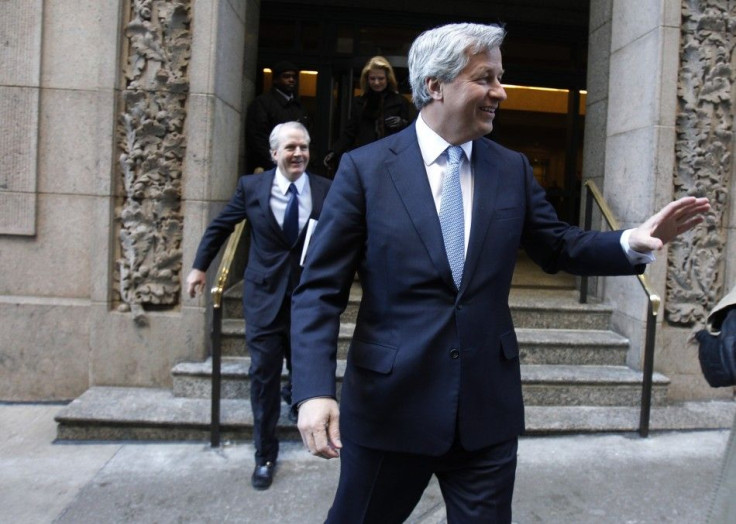Analysis: Jamie Dimon Proves Why He Remains CEO And Chairman of JPMorgan (JPM)

Jamie Dimon is hanging ten on JPMorgan Chase’s (NYSE:JPM) wave of higher-than-expected second-quarter earnings.
The CEO and chairman, who in May was under pressure to surrender the latter title after what some investors saw as a series of mistakes, showed on Friday he could helm the nation’s largest bank by assets as both captain and first mate, steering it toward ever-higher profits.
JPMorgan posted net profits of $6.5 billion in the second quarter, up from $5 billion in the same quarter last year.
Dimon was one of the sole Wall Street executives to hold onto his job and reputation in the fallout of the 2008 financial crisis. But, ahead of the company’s annual meeting May 21, some of its biggest shareholders were hoping to push Dimon out of his role as “imperial CEO,” giving a separate chairman oversight over his decisions.
His detractors pointed to the “London Whale,” the nickname of trader Bruno Iksil, who accumulated outsized credit default swap positions, losing the company about $6.2 billion. They also proposed that JPMorgan follow suit with many other Wall Street firms, which have lately been keeping CEOs on tight leashes and reducing the number of chief executives in the chairman seat.
“Dimon shouldn’t run the board, because the board is the agent for Dimon’s boss, and its first responsibility is to monitor Dimon,” Roger Lowenstein, author of “The End of Wall Street,” wrote in the Harvard Business Review in May. “[D]ual roles are not only inappropriate, they are vestigial hallmarks of the imperial CEO.”
But, when shareholders went to the polls, two in three voted to keep the silver-haired New York native in both seats, solidifying his place as one of Wall Street’s elder statesmen.
“I wouldn’t have liked it,” Dimon said, when asked Friday morning by CNBC’s Jim Cramer whether he would have left the company if he lost his chairmanship. “But I wouldn’t have left my company high and dry.”
Quite the opposite.
After defeating the proposal to strip him of his chairman title, Dimon bounced back as Wall Street’s leading man and led his bank to massive profits in 2013’s second quarter. Earnings were up 31 percent, and the stock price was up 0.27 percent by about 1:10 p.m. on Friday, to $55.29.
As The Daily Beast’s Daniel Gross wrote in May, JPMorgan’s “comparative ‘success’” kept Dimon seated on the throne.
“While JPMorgan Chase has had a series of embarrassing fails, the bank has never been in real danger of failing,” he wrote. “In general, it has performed better than its peers.”
Two months later, that argument appears true.
© Copyright IBTimes 2024. All rights reserved.












